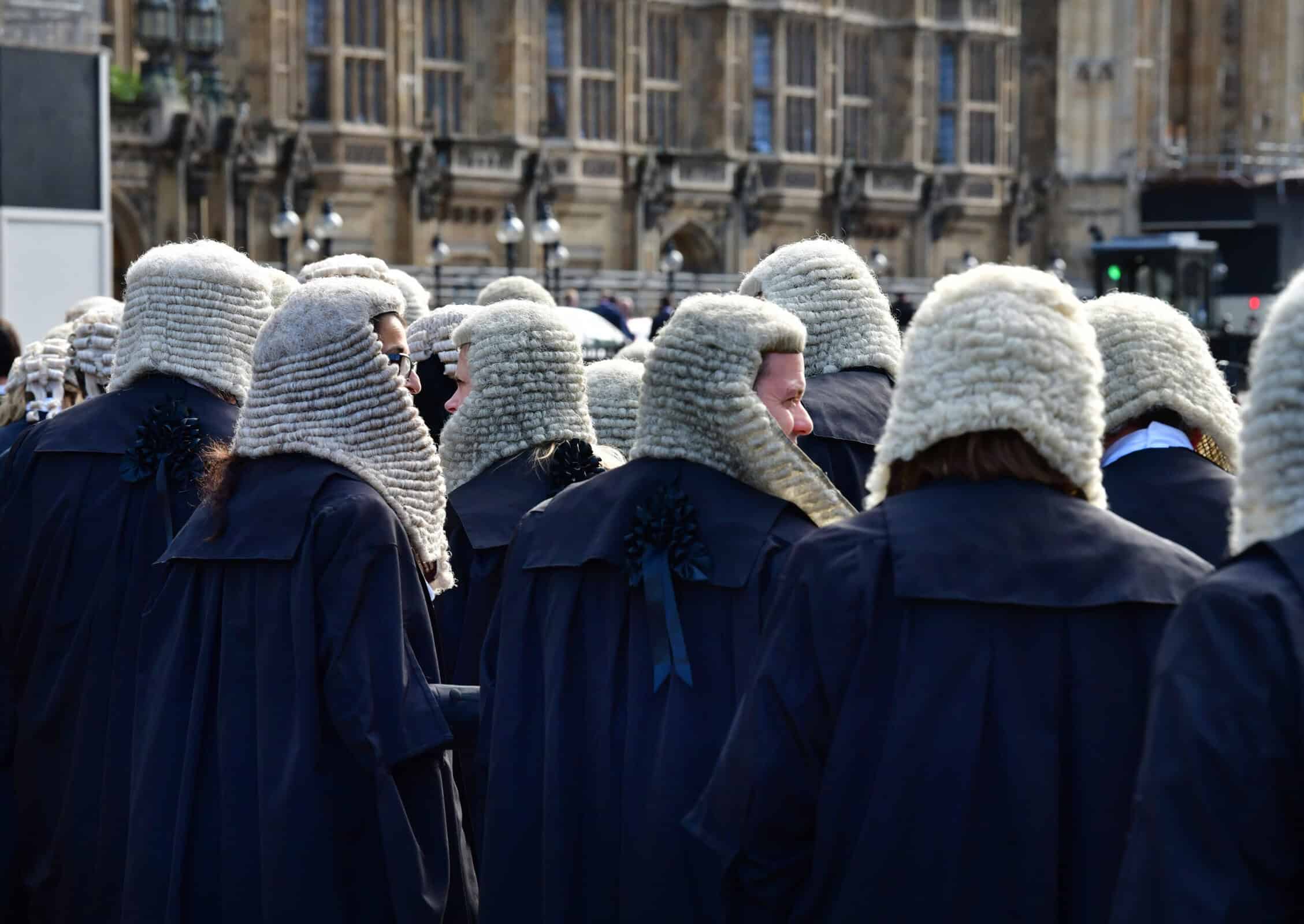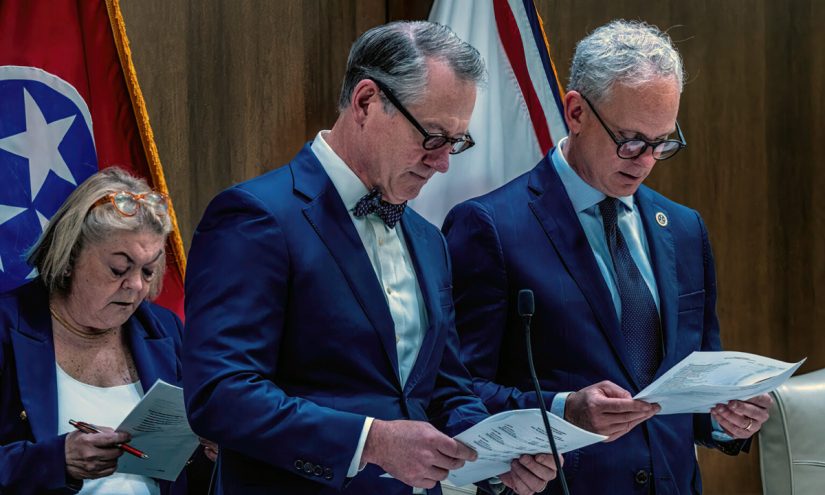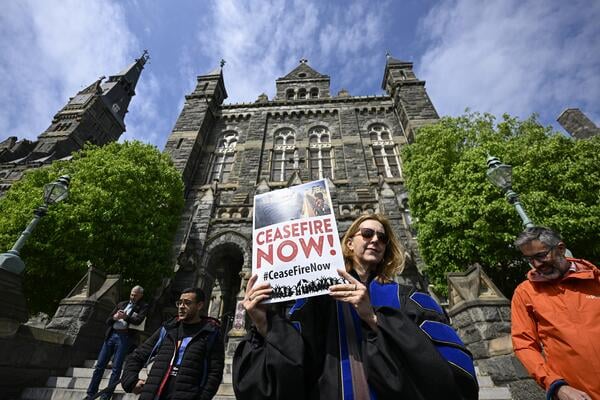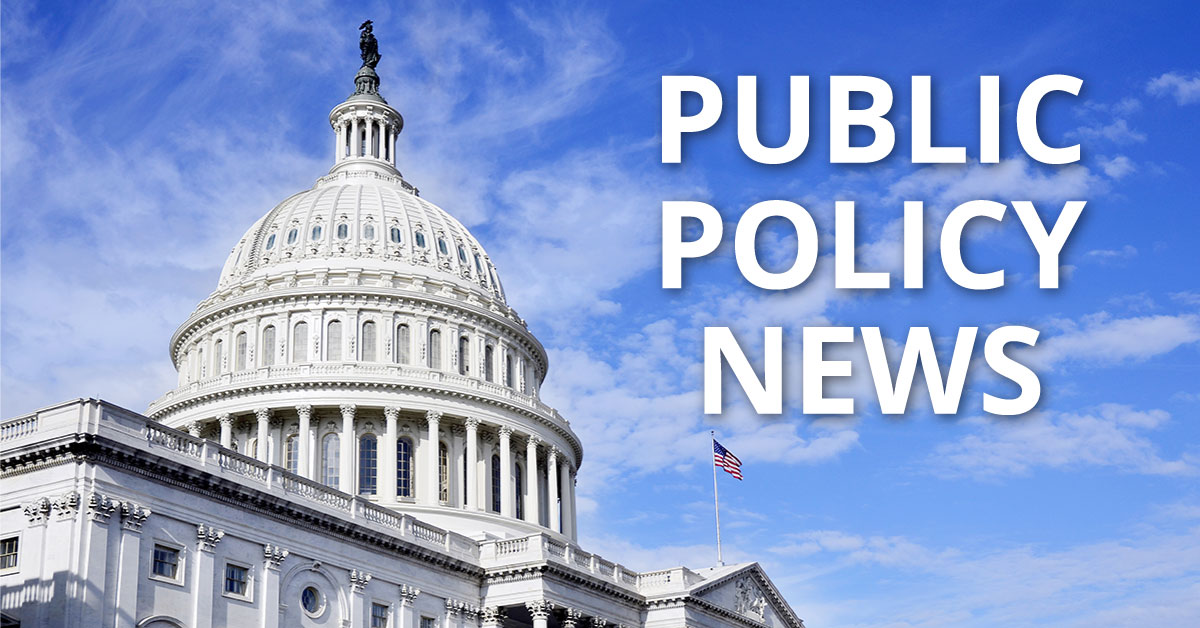Earlier this month, Immigration and Customs Enforcement (ICE) agents arrested Mahmoud Khalil, a green card holder and recent Columbia University graduate, and threatened him with deportation. The Trump administration said Khalil, who is of Palestinian descent, was a national security threat and accused him of terrorist activity for leading student protests at Columbia last year.
In a public statement to The Guardian, Khalil described himself as a “political prisoner.”
“The Trump administration is targeting me as part of a broader strategy to suppress dissent,” he said. “Visa holders, green-card carriers, and citizens alike will all be targeted for their political beliefs.”
That prediction has begun to come true. In the past three weeks, immigration officers have targeted international students they suspected of participating in pro-Palestinian protests, raiding their dorm rooms and revoking their visas. In recent days, the administration’s dragnet has widened to include faculty members, postdoctoral fellows, visiting scholars and researchers.
At least two of those international scholars were employed by U.S. institutions and in the country on valid work or academic visas. An Indian postdoctoral research fellow at Georgetown University was detained outside his home for alleged pro-Palestinian activity that the administration has yet to specify; and a Lebanese professor at Brown University’s medical school was denied reentry after attending the funeral of assassinated Hezbollah leader Hassan Nusrallah.
Another case involves an unidentified French scientist, who, according to a statement from the French Minister of Higher Education and Research, was denied entry into the U.S. because of his “personal opinion on the Trump administration’s research policy.”
Isaac Kamola, director of the American Association of University Professors’ Center for the Defense of Academic Freedom and an associate political science professor at Trinity College in Connecticut, said the administration’s “completely arbitrary” crackdown on foreign scholars threatens academic freedom and undermines the role of U.S. institutions in global research exchange and scholarship networks.
“I think it’s pretty clear that the administration has decided it’s going to use the force of the state to intimidate faculty and students,” he said. “They’re basically doing a kind of stochastic terrorism.”
The administration is also targeting international doctoral candidates who participated in pro-Palestinian protests last year, revoking their visas and sending ICE agents to apprehend them.
Momodou Taal, a British Ph.D. candidate at Cornell University who made national headlines when he overturned an academic suspension for protest activity that would have forced him to leave the country, received a visit from ICE agents on Wednesday. Just days earlier, Taal filed a lawsuit against the Trump administration seeking to block immigration officials from deporting international students for protesting.
Taal told Inside Higher Ed he’d been expecting a knock on his door since Trump’s inauguration, and that immigration officials were targeting students and scholars for protected pro-Palestinian speech.
“It goes against the ideals that this country espouses, or at least claims to espouse,” Taal said. “I’ve not been convicted of a crime, I’m not being charged with any crime or accused of any crime. So why should I be living in fear over what I decide to say and the causes I support?”
Teresa R. Manning, director of policy at the conservative National Association of Scholars, said, “We see it as more an issue of security and safety than an issue of academics or free speech.”
“The real threat to free speech is the complete leftwing domination of American education,” Manning said. “No conservatives are allowed. That’s the real threat, not our attempt to guard the nation’s security and safety and protect against potential terrorist threats.”
The White House did not respond to a request for comment Thursday, nor did a spokesperson for ICE. A spokesperson for the State Department’s Bureau of Educational and Cultural Affairs, which oversees and promotes global academic and research exchange, did not respond to a request for comment in time for publication.
Georgetown Fellow Detained
On Monday night, immigration officials arrested and detained Badar Khan Suri, an Indian postdoctoral fellow at Georgetown University, outside his home in Rosslyn, Virginia. Suri was in the country on a J-1 visa, a nonimmigrant document meant to promote academic and cultural exchange that is usually reserved for students and scholars; according to his lawyers, Department of Homeland Security agents told him his visa had been revoked.
A peace and conflict studies scholar, he was at Georgetown’s School of Foreign Service conducting research for his dissertation on the U.S. peace process in Iraq and Afghanistan.
“If an accomplished scholar who focuses on conflict resolution is whom the government decides is bad for foreign policy, then perhaps the problem is with the government, not the scholar,” Suri’s lawyer Hassan Ahmad wrote in a statement Thursday.
After his arrest, Suri was first brought to a migrant holding cell in Virginia before being transported to Louisiana, where he’s currently awaiting trial in the same detention center as Khalil, according to Suri’s lawyers.
Tricia McLaughlin, a spokesperson for the Department of Homeland Security, said in a statement on X that Suri had been detained for “spreading Hamas propaganda and promoting antisemitism on social media,” though she failed to provide any evidence.
Suri’s wife, a U.S. citizen of Palestinian descent and a graduate student at Georgetown, is the daughter of Ahmed Yousef, former adviser to the late Hamas leader Ismail Haniyeh, The New York Times confirmed. Yousef, who has called the Oct. 7, 2023 Hamas attacks a “terrible error,” told The Times that he left his position a decade ago and that his daughter and son-in-law have no involvement in political activism on behalf of the organization.
On Thursday, a federal judge in Virginia ordered that Suri be kept in the country until a lawsuit brought by his lawyers is resolved, according to The Washington Post.
In a post on BlueSky Thursday, Virginia representative Don Beyer wrote that “the arrests of academics like Suri and Mahmoud Khalil are intended to have a chilling effect and discourage the free expression of political views which Trump dislikes.”
A Georgetown spokesperson told Inside Higher Ed that the university was “not aware of [Suri] engaging in any illegal activity, and we have not received a reason for his detention.”
“Suri is an Indian national who was duly granted a visa to enter the United States to continue his doctoral research on peacebuilding in Iraq and Afghanistan,” the spokesperson wrote in an email. “We support our community members’ rights to free and open inquiry, deliberation and debate, even if the underlying ideas may be difficult, controversial or objectionable. We expect the legal system to adjudicate this case fairly.”
Brown Professor Denied Entry
Media outlets have reported that Rasha Alawieh, an assistant professor of medicine and clinician educator at Brown, was flown out of the U.S. last week despite a court order requiring the government to inform a judge ahead of any deportation. The federal government said Alawieh was returning from Lebanon, where she had attended the funeral of Hezbollah leader Hassan Nusrallah. Officials also said she had deleted “sympathetic photos and videos” of Hezbollah leaders from her phone.
Alawieh never made it past Boston’s Logan International Airport. On Monday, a DHS spokesperson posted on X that Nusrallah was “a brutal terrorist” and that Alawieh had “openly admitted” attending his funeral and supporting him.
“A visa is a privilege not a right—glorifying and supporting terrorists who kill Americans is grounds for visa issuance to be denied,” the spokesperson wrote. “This is commonsense security.”
The White House then reposted DHS’s statement with a photo of President Trump waving goodbye out of a drive-thru window at McDonald’s during a campaign stop.
Kamola, of the AAUP, said claims of Alawieh’s supposed connections to Hezbollah were “spurious.” One of Alawieh’s lawyers didn’t respond to requests for comment Thursday.
Asked whether Brown is defending Alawieh’s academic freedom or disciplining her, Amanda McGregor, a spokesperson for Brown, replied only that “Alawieh is an employee of Brown Medicine with a clinical appointment to Brown University.”
“Such appointments carry a faculty title, though the employment resides with Brown Medicine,” McGregor wrote in an email.
Interrogated for Anti-Trump Texts
Meanwhile, foreign academics traveling to the U.S. are being hassled and turned away by border agents.
Philippe Baptiste, France’s minister of higher education and research, told Agence France-Presse that a French scientist from the country’s National Center for Scientific Research was heading to a conference near Houston, Texas, when the scientist was denied entry and expelled. The minister did not reveal the scientist’s name.
“This measure was apparently taken by the American authorities because the researcher’s phone contained exchanges with colleagues and friends in which he expressed a personal opinion on the Trump administration’s research policy,” Baptiste said. “Freedom of opinion, free research and academic freedom are values we will continue to proudly uphold.”
On Wednesday, Baptiste met with counterparts from other European Union nations to discuss “threats to free research in the United States,” according to a post on X.
As the Trump administration escalates its attacks on foreigners in American academe, international students are increasingly apprehensive about studying at U.S. institutions and scholars worry about attending conferences or accepting fellowships in the country. Kamola said the end result may be the destruction of America’s reputation as a bastion of academic freedom.
“I think the message is: Everybody who wants to speak about Palestine, everybody who wants to argue that higher education should be more inclusive or diverse, anybody who wants to defend free speech in ways that the current regime finds unacceptable could potentially face retaliation,” Kamola said. “The intention is to not only sow chaos but to sow fear.”






